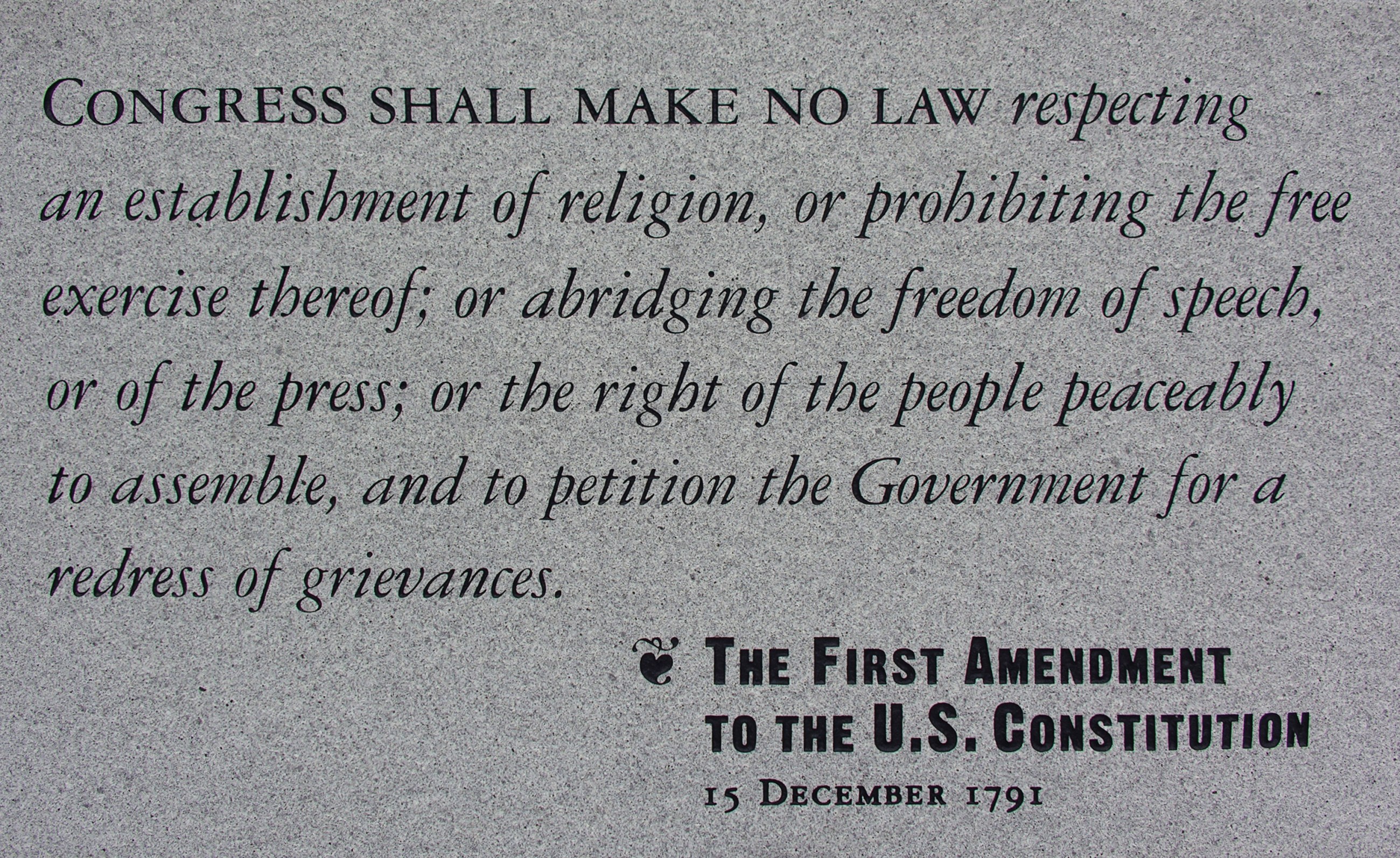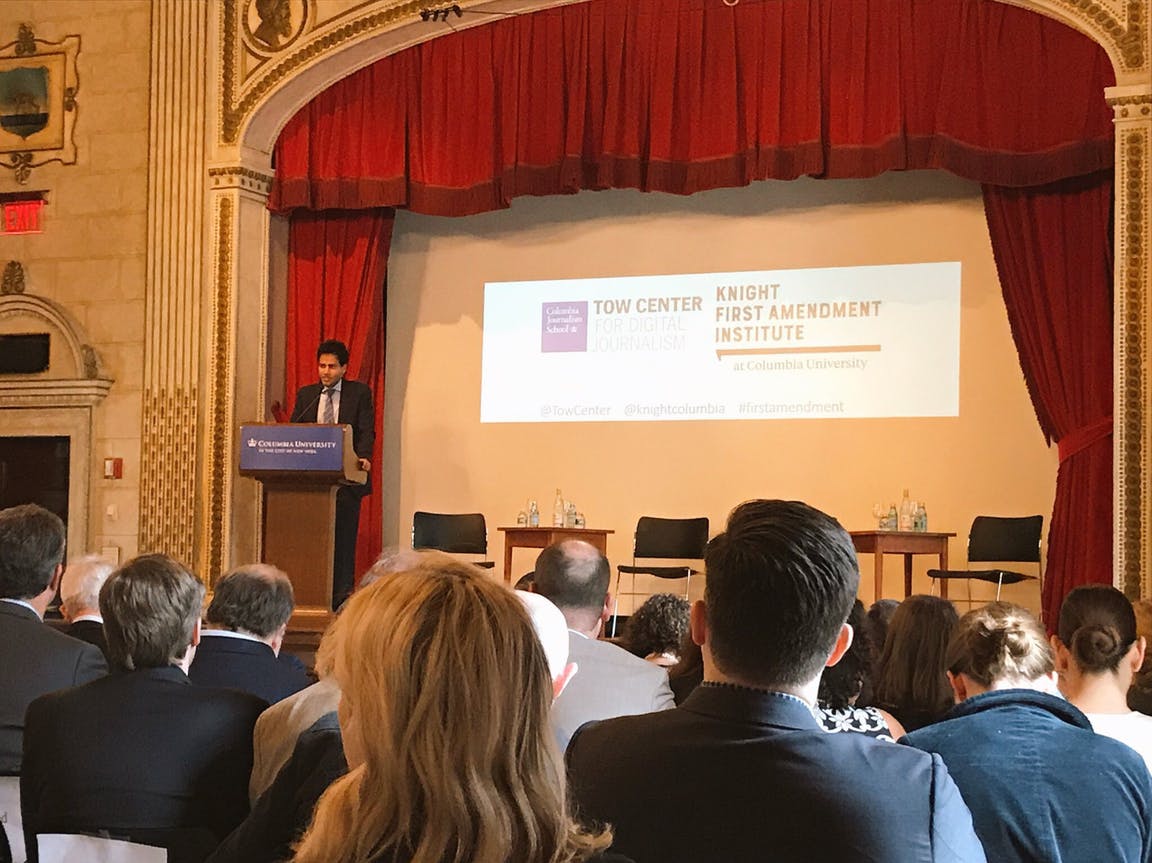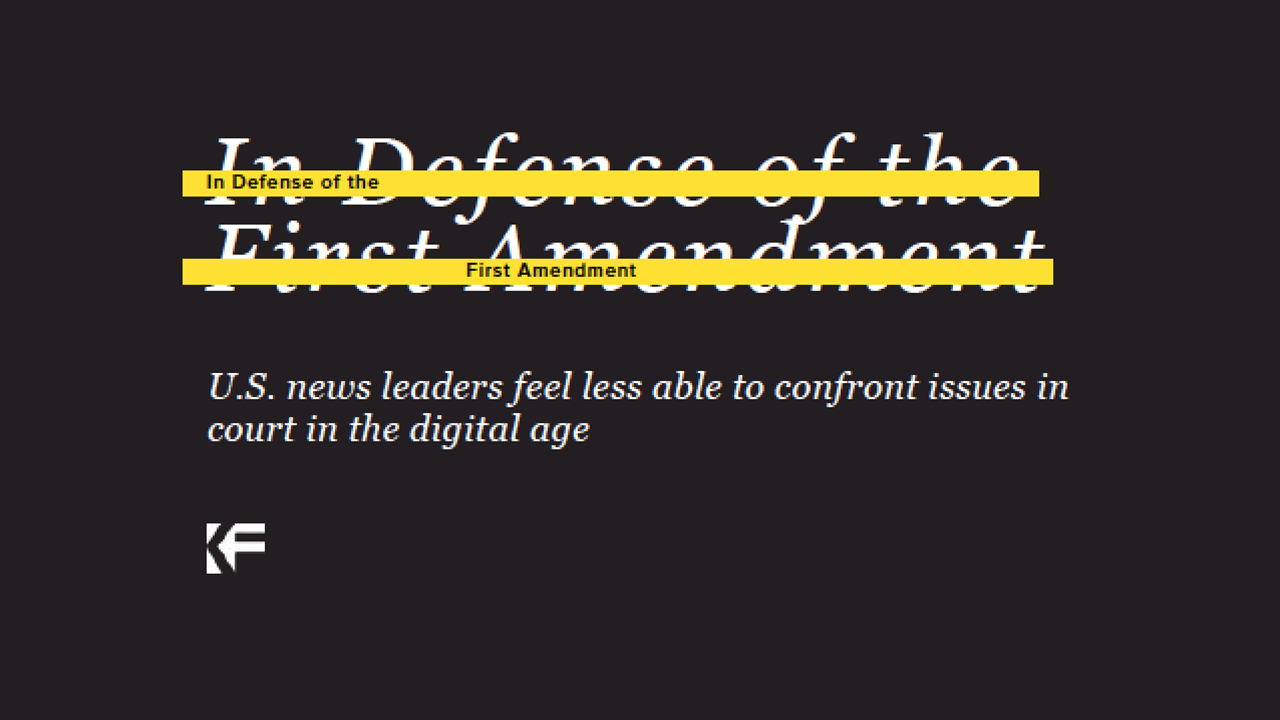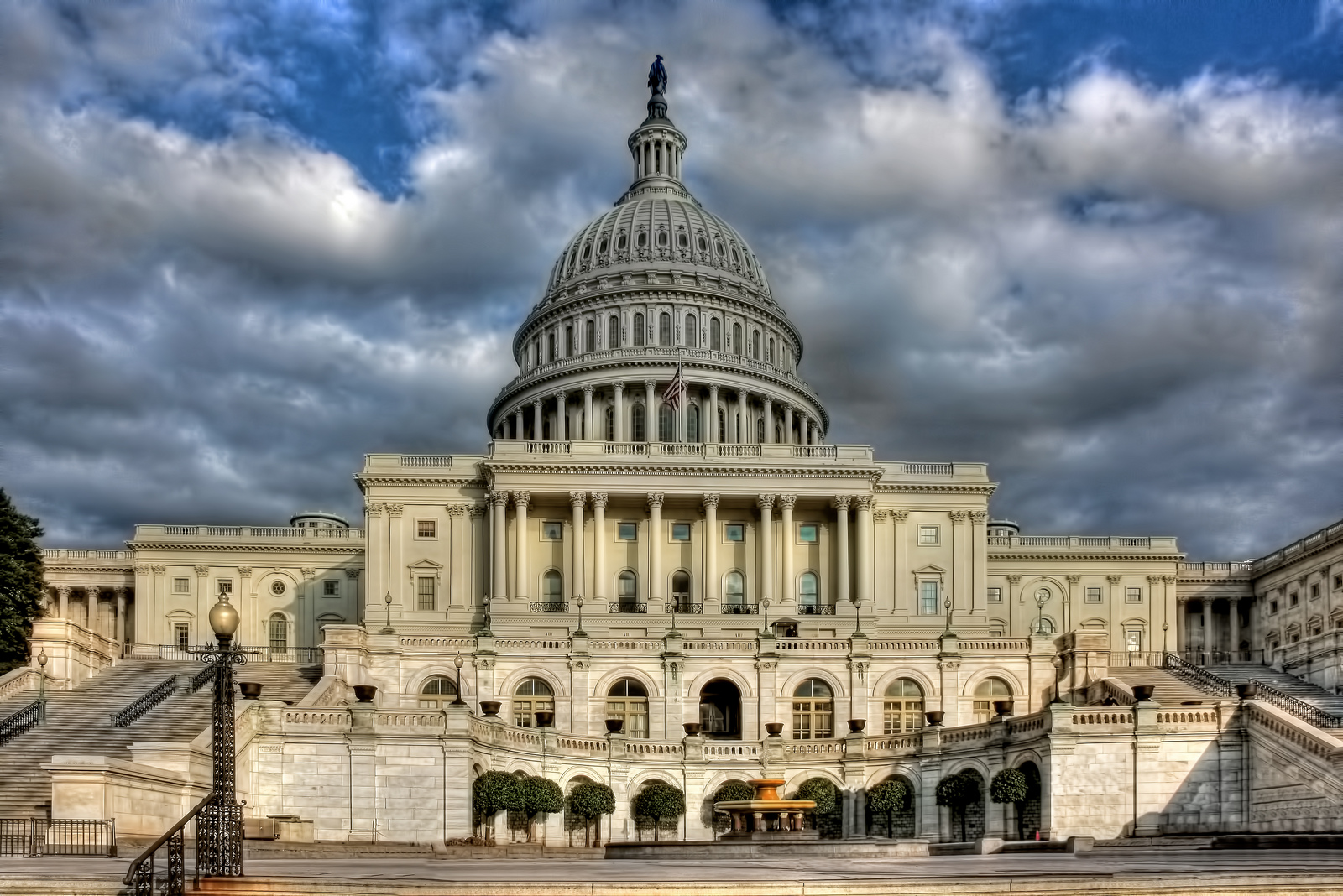
In defense of freedom: First event for Knight First Amendment Institute spotlights urgent challenges of the digital age
Fake news gets passed off as fact. Social media, technology and communications giants disproportionately dictate the flow of information. Polarizing public debates raise hard questions about what average people and presidents alike should and shouldn’t say—and about who, if any one, has the right to censor another.
Such fraught realities of this hyperdigital era were fodder for a symposium on the U.S. Constitution’s promise of a free press and free speech, the inaugural event of the Knight First Amendment Institute at Columbia University. The journalists, academics, civil libertarians, human rights monitors and other speakers at the May 1 discussion, “Disrupted: Speech and Democracy in the Digital Age,” also spotlighted global concerns about speech, press and related freedoms.
They are, the experts said, among those grappling with how to uphold the roughly 225-year-old First Amendment, and to focus attention on parts of the world where its ideals are absent.
A major hindrance in securing those freedoms, they said, is the ever-evolving internet. The internet seemingly has upended longstanding laws about free expression and the processes involved in protecting it, experts said. Private companies largely control the internet in the United States, with what speakers contend is nominal government regulation; and, in some other parts of the world, authoritarian governments randomly shut down certain corners of the internet and sometimes deploy the internet against their own people.
Seven years ago, Knight Foundation and Columbia started laying the groundwork for the institute, Knight Foundation President Alberto Ibargüen told the symposium audience.
“It was not obvious to a lot of people that we needed a new champion to defend rights that most took for granted and didn’t think were under attack,” he said, reflecting back. “At the dawn of the Internet of Things, the law of First Amendment was clearly not settled as to the new digital universe in which we would increasingly communicate everything … The technologies meant to bring us closer together have, instead, driven us apart and engendered insularity. Common facts and studied truths are giving way to personal opinions and uninformed beliefs.”
The “new media behemoths,” he said, do threaten free expression. Knight chose Columbia to conduct research, litigate and hold conferences on the First Amendment because it believes the university would not cower to private interests or buckle under government threat, Ibargüen said.
The speakers echoed his First Amendment concerns and detailed their own.
The internet “will surveil us and judge us in ways we don’t notice,” said Zeynep Tufekci, a University of North Carolina sociologist, adding that she grew up under a dictator in her native Turkey, where assorted freedoms now are under attack. It’s “also going to distract us in ways that are hard to combat and … [it] will question the credibility of things—so much so that you don’t know what’s true anymore … It’s a very insidious new form of control.”
Slated to hit booksellers on May 16, Tufekci’s “Twitter and Tear Gas: The Power and Fragility of Networked Protests” tracks, among other trends, social protests that both are organized and disrupted through social media campaigns.
Indeed, how everyday people, news organizations and other institutions manage to get out an authentic, factually vetted, unfettered message is a major challenge these days, she and other speakers said. Among other telling, emblematic examples of the problem, they cited accusations that the Chinese government is paying members of a so-called “50 Cent Army” to troll anti-government protesters on social media sites and to counter their protests with pro-government gatherings.
The speakers noted that a record number of journalists in nations including China, Turkey and Egypt—President Donald Trump applauded and hosted China’s and Egypt’s presidents, and has invited Turkey’s leader to the United States—have been attacked or killed in recent years. (The Trump White House also has threatened to ease libel laws making it easier to sue U.S. journalists.)
The speakers said they were troubled that so many people around the globe exclusively listen to and read, through social and other media, only the truths, untruths and opinions supporting their ideals. The speakers said they hope even those entrenched habits reach a tipping point and reverse themselves as average persons, news organizations and others find alternate ways of sharing information and of building new audiences.
Still, the speakers admitted that no one knows what, if anything, will become of that hope.

As one measure of what the First Amendment and its supporters are up against, Columbia Journalism School Dean Emeritus Nicholas Lemann cited Facebook CEO Mark Zuckerberg’s pledge to block fake news from the hugely popular site and the roadblocks to achieving that.
Also, Lemann noted that visitors to the company’s Silicon Valley headquarters are required to sign a non-disclosure form, limiting what they can say about that visit. He noted the hypocrisy of Facebook, Google and others that profit from mining the social media habits of users, which reveal a plethora of minute details about their preferences and enable the companies to steer them toward products and information.
“They believe the information [posted on Facebook] should be free but they don’t include their algorithms in that” free exchange of information, Lemann said.
Lemann continued: “All these big platforms ban hate speech … but when hate speech is found on Google the [company] president says, ‘Oh my God … it slipped through!”
On other topics, several speakers concluded that U.S. courts are charged with deciding what is allowable speech, and that they have done so inconsistently.
“We’re in for a fight,” said author and University of Texas Law Professor Jeffrey Abramson, adding that it did not bode well for a free press that former pro wrestler Hulk Hogan won an invasion of privacy lawsuit against Gawker that the parties then settled for $31 million. He sued the company for posting a sex video with him in it. Spanish-language broadcast giant Univision bought Gawker after it filed bankruptcy.
“It’s problematic when the press cannot publish the truth,” no matter the oddity of that particular story, said Abramson, author of books including “We, the Jury: The Jury and the Ideal Democracy.”
Asked about what some saw as the blatantly racist protests of white students against a University of Texas policy of admitting undocumented immigrants, Abramson said that presented a whole other free speech conundrum.
“They appeared in sombreros, bandanas—not quite black face but total ridicule of a student population,” he said. “On the one hand, we are supposed to tolerate that. On the other hand, … this is a group trying to silence, to the point of exiling, eliminating from campus, an entire group. You’re in a state where that has tremendous resonance.”
Added Suzanne Nossel, former executive director of Amnesty International USA, now directing PEN America: “The university shouldn’t want to shut it down. But it’s also a moral actor with a responsibility to say: We reject this … It’s not just offensive. It can be undermining and psychologically damaging to be on a campus where that takes place.”
What, in a world where hatred and censorship seems steadily normalized, Abramson asked, does the next generation glean from all that?
Freedom of expression should not exist in a vacuum, said Aryeh Neier, president emeritus of the Open Society Foundations. “Dignity is the principal value set forth in the Universal Declaration of Human Rights … It is a word, however, never mentioned in any of the fundamental documents of the United States.”
As for Trump’s attack on the U.S. press, while presiding over what many still see as the preeminent world power and human rights arbiter, Neier, former director of the American Civil Liberties Union, offered this: “If the U.S. does not take a strong and consistent stand for freedom of expression, the chances are that its philosophic commitment to freedom or liberty will not fare well in the resolution of such questions internationally.”
Connecting the efforts of free expression advocates in the United States with advocates elsewhere, especially those working under exceedingly harsher conditions, is key, said lawyer Jameel Jaffer, the Knight Institute’s founding director and a former ACLU executive. Jointly, Knight and Columbia seeded the institute with $60 million.
“It can be difficult to distinguish the most significant threats to First Amendment freedoms from the threats that are the loudest,” Jaffer said.
“An organization tasked with defending First Amendment freedoms,” he added, “is defending a set of guarantees whose purpose and meaning are deeply contested … How does the work that we and other free speech advocates do today relate to the work others did before us? What baton has been passed to us?”
Katti Gray is a freelance writer and editor. For more, visit kattigray.com and follow her on Twitter @KattiGray.
For more on the Knight Institute for the First Amendment, visit knightcolumbia.org and follow @knightcolumbia on Twitter.
-
-
Journalism / Article
-
Journalism / Article
-
Article
-
Journalism / Article
-
Journalism / Article
-
Information and Society / Report
Recent Content
-
Journalismarticle ·
-
Journalismarticle ·
-
Journalismarticle ·







